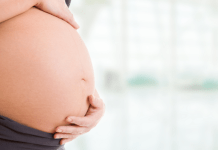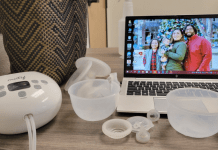Pregnant During the COVID-19 Pandemic: How It Began
The road to my postpartum depression journey began at the end of my pregnancy. It was March 2020, and the COVID-19 pandemic was evolving rapidly around the globe. My belly was growing rapidly, too. I was pregnant with my second baby. My OBGYN appointments started to look different. My husband and firstborn son were no longer allowed in with me.
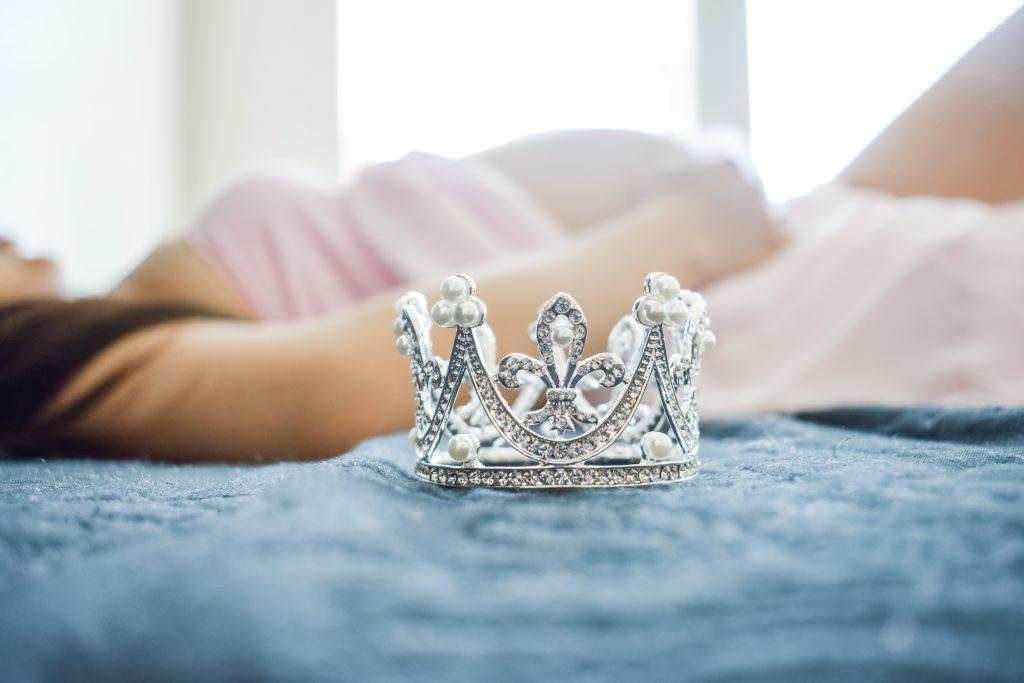
The long-awaited and planned baby shower filled with pink and florals? We had to cancel it. Shopping for my baby girl? All stores were closed, and the online orders took longer to ship. We couldn’t leave our home, and if we did, it took us over 15 min to do our sanitizing routines before and after to stay safe. There was a shortage of basic household supplies like toilet paper, water, and disinfecting materials, and it took hours in line just to go into the store to grocery shop.
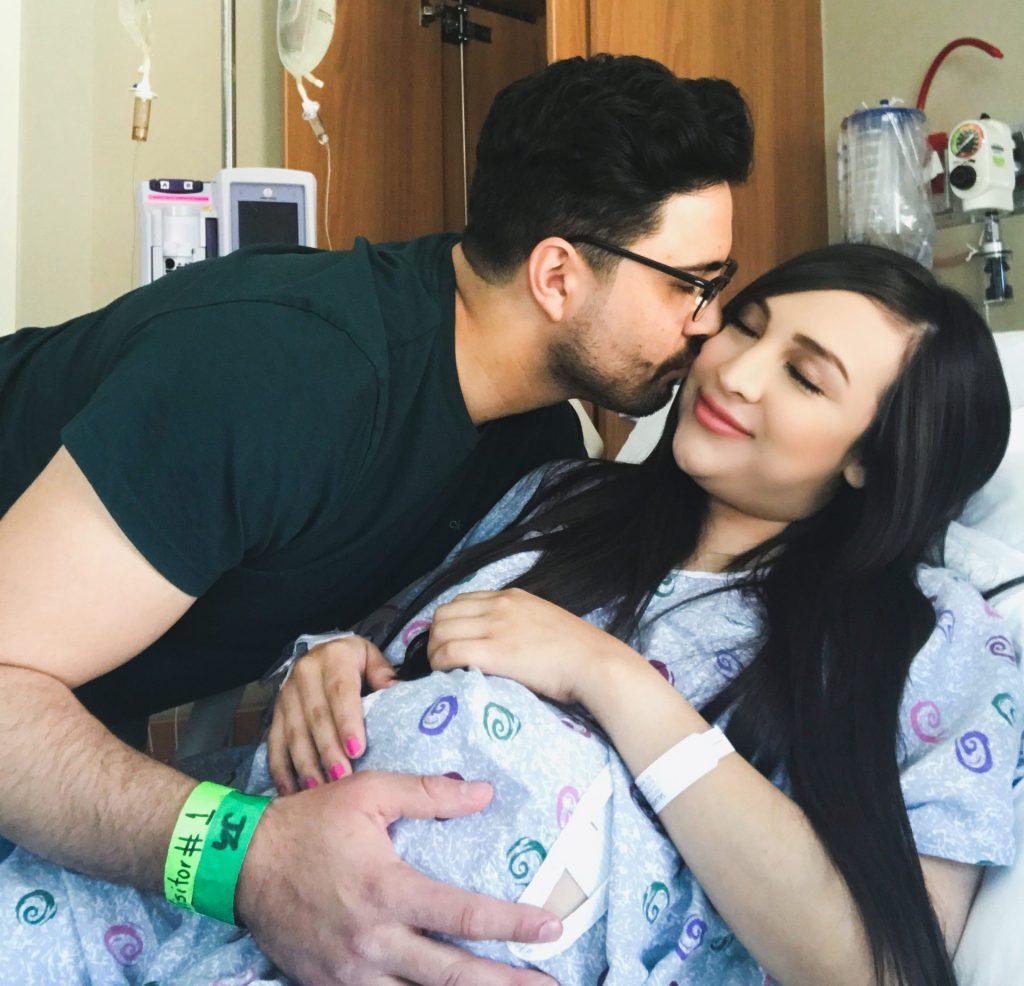
Everything around the world just . . . changed. And it changed me, too.
The “new normal” was barely taking form at the time. The number of infections were high, and the changes to our life were happening so fast. I would have to give birth soon and was registered at the hospital already. We chose that hospital because my firstborn son would be allowed to join me during the labor and after the birth to meet his little sister. I was also looking forward to having my mom and husband during the delivery. But with the COVID-19 pandemic evolving, I had heard that mothers were forced to give birth alone. Thankfully, I didn’t. I was blessed that the hospital and OBGYN allowed one visitor (with restrictions).
At least I would have my husband with me, but my mom and son couldn’t share those moments with me. I had to mourn that loss, too.
Overall, the end of my pregnancy felt lonely and full of uncertainty with the effect that the COVID-19 pandemic brought. I developed antepartum anxiety, which soon turned into worse. I remember my postpartum journey with my daughter as a blur, but having now had four babies, I can confidently say it was my hardest.
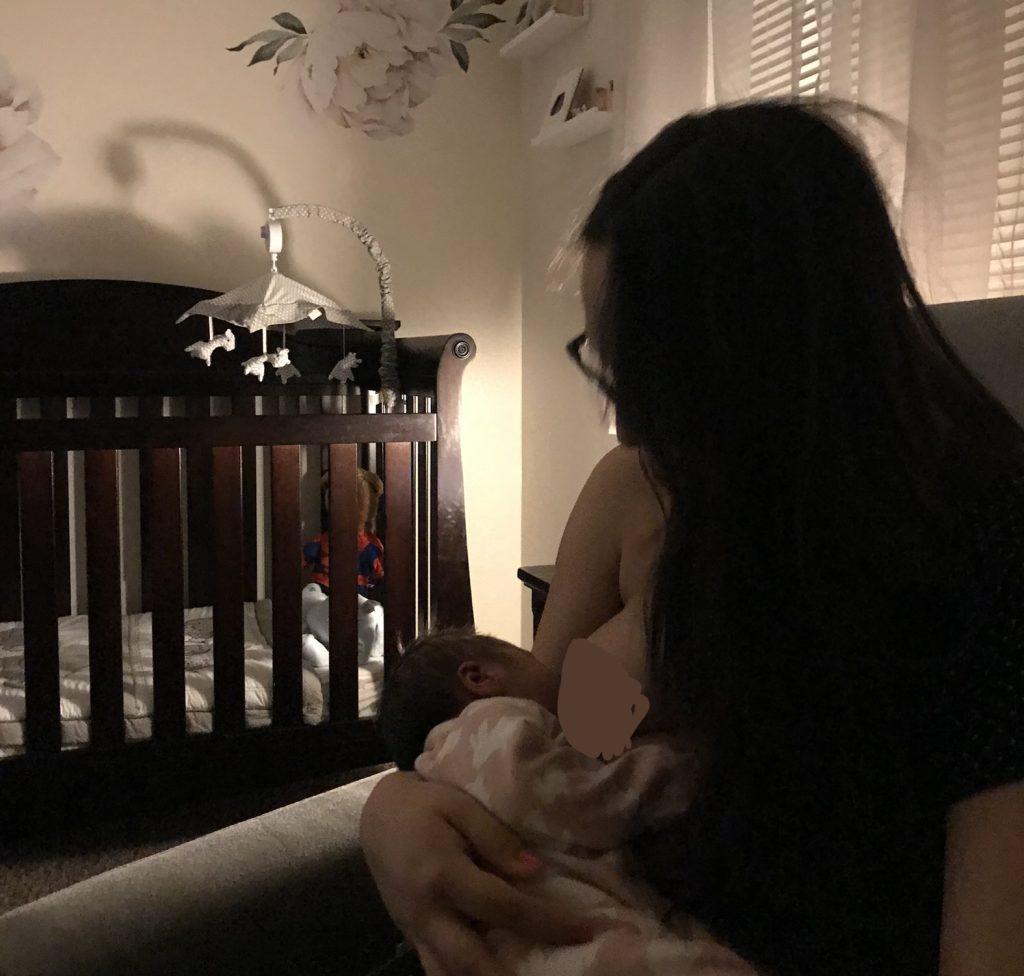
Welcome to 2 under 2. I will never forget our first night home from the hospital.
We are a co-sleeping family. My son slept in our bed with us, and my newborn daughter in a bassinet beside my bed. I remember my daughter constantly waking up crying loudly. She had a bad latch, and I was not knowledgeable on how to fix it. My 18-month-old son woke up crying from the sound of my daughter’s cries while I rocked her to sleep. Seeing him crying made me burst into tears, too. Feelings of guilt invaded me. I remember turning to my husband and seeing him cry too. It was one of the hardest nights we have ever experienced as a family.
Almost every night looked the same (minus my husband and firstborn crying). My newborn daughter was a night owl. She slept all day and was up all night. I had to resort to set myself a bed in a different room so I could sleep close to my daughter without her waking everyone else up, and those nights felt so lonely. Rocking her to sleep in that dark room, crying from the pain of breastfeeding her (which turned into mastitis later), the lack of sleep, and the never-ending feelings of mom guilt. I felt as if I wasn’t enough for my firstborn and my newborn.
Mrs. Hernandez, you have Postpartum Depression.
I would feel sad and cry often, and I felt guilty about it. Why should I even feel sad? I have everything I ever wanted: a loving husband, a happy and healthy 18-month-old son, and a beautiful newborn daughter who is also healthy. I had it all, so why be sad? But I couldn’t help it–I felt sadness often as I navigated the trenches of postpartum and adjusting to a new normal brought on by the changing world around me.
» » » » » RELATED READ: A First Time for Everything: Battling Postpartum Depression « « « « «
Like other moms do, I lied in my Edinburgh Postnatal Depression Scale survey at my daughter’s two-week pediatrician appointment. Why? Because I did not want to be a burden to anyone else. When the pediatrician came into the room, she asked me, “How is everything going?” I felt my eyes get watery as I said, “I’m good, and you?” She asked again. “But really, how are you?” I couldn’t hold back the tears anymore. I tried my best to tell her what was wrong, knowing there was only so much she could do. “You have postpartum depression. You need help.” She provided me with a referral to a counselor.
But everything was closed, and the telehealth appointments had a two-month wait list.
Loneliness was all that I could feel. I now knew I had postpartum depression, but getting help with everything closed down and a long wait for telehealth therapy seemed impossible. Where do I turn to now? Initially, my husband would be off work for two weeks to be home with our family. I did not want to feel like a burden, but I had to defeat the feeling to get help. After the pediatric appointment, I explained to my husband the severity of my condition and asked for his help.


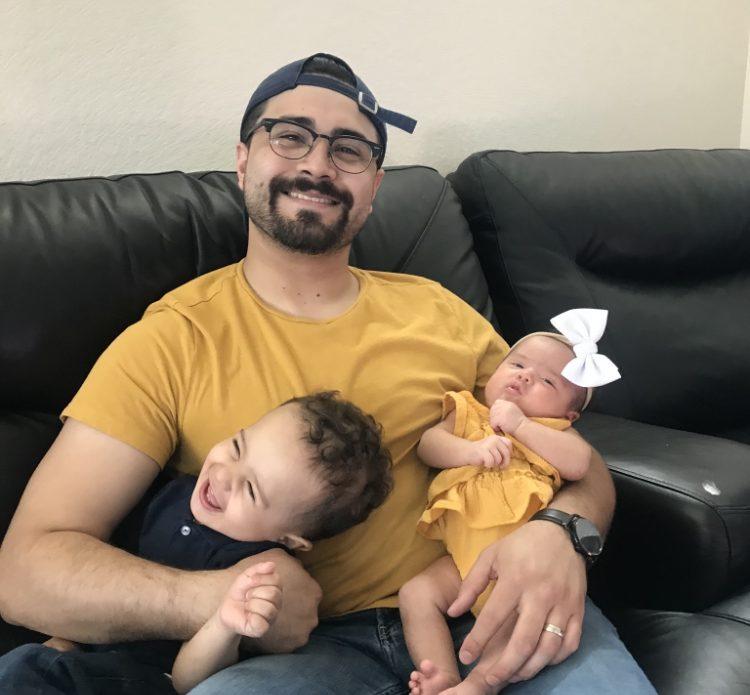
Of course, my love.
My husband gladly agreed to take a longer time off to help me through the postpartum period. This would also give us enhanced protection from the COVID-19 pandemic (which weighed on me, too). At what cost, though? The Family and Medical Leave Act (FMLA) provides certain employees with up to 12 weeks of unpaid, job-protected leave per year. He would take a longer time off to be with me, which meant our finances suffered, but at least I would be okay.
It’s okay to ask for help.
I don’t know HOW I would’ve done it without my husband. He did so much for me during those six weeks he stayed home with us. In those weeks, not only did I beat postpartum depression but also mastitis a total of three times within that span of six weeks. This experience brought me closer to my husband and empowered me to ask for help when needed.
Dear Mama, never doubt for a second your capability to rise from anything, but you have to take care of yourself first. You cannot pour from an empty cup. Sometimes, the best way to take care of yourself is to simply ask for help. My antepartum anxiety brought on by the COVID-19 pandemic turned into postpartum depression once I had my baby, which pushed me to ask for help. I hope my story empowers YOU to ask for help when you need it too!
The opinions expressed in this post are those of the author. They do not necessarily reflect the official policy or position of El Paso Mom, its executive team, other contributors to the site, its sponsors or partners, or any organizations the aforementioned might be affiliated with.



